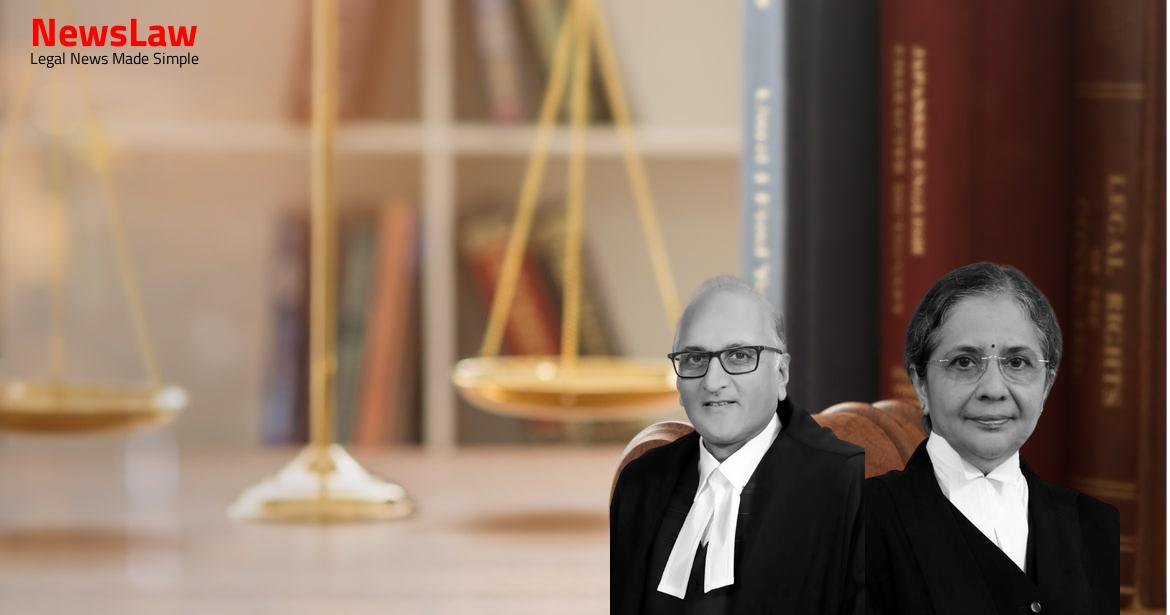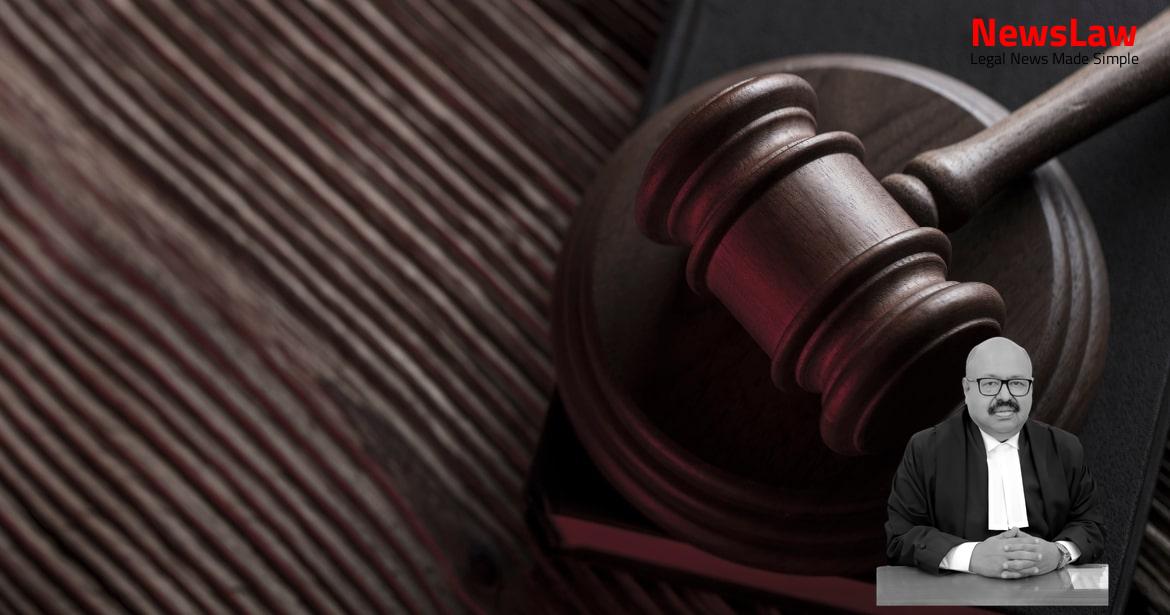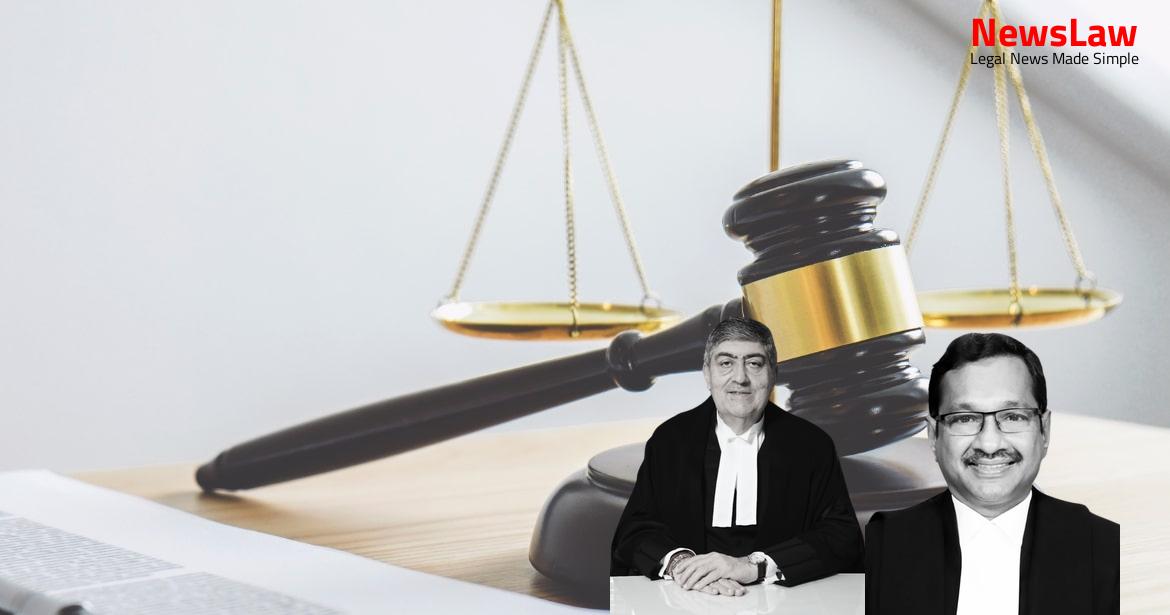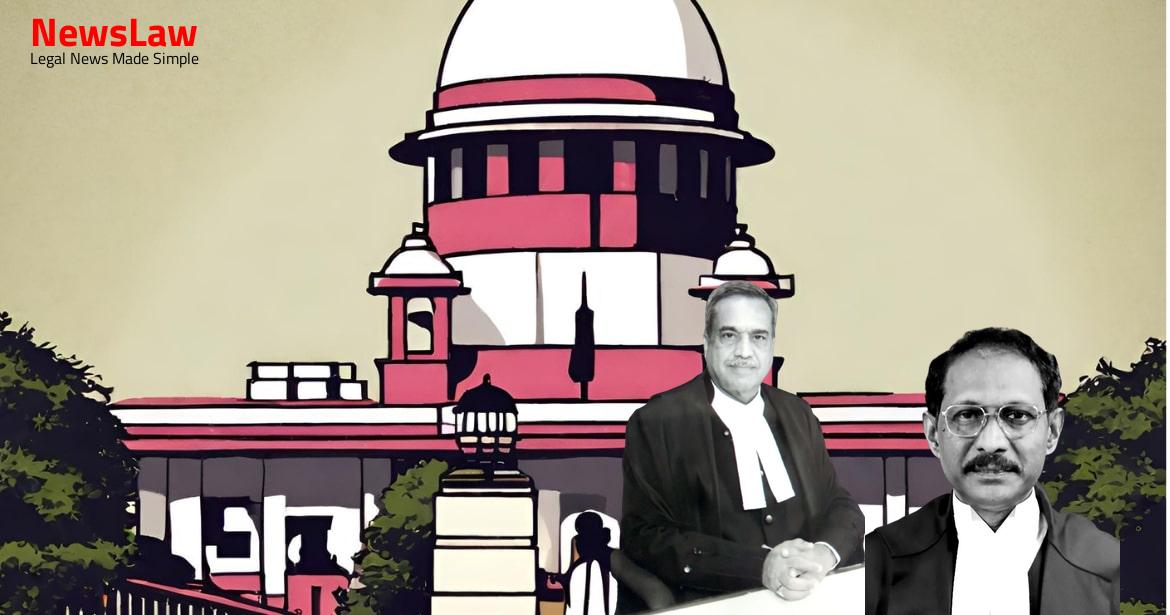In a recent legal judgment, the Court delves into the importance of judicial deference in academic institutions’ setting of admission criteria. The analysis highlights the need for courts to respect the autonomy of academic institutions, especially in matters concerning technical education. Find out more about the complex legal analysis on academic admissions in our latest blog post.
Facts
- The petitioner IIT is aggrieved by a judgment of the single judge of the Calcutta High Court
- The High Court allowed a writ petition filed by Soutrik, directing IIT to decide his candidature for JEE Advanced afresh
- Soutrik qualified for JEE Advanced based on his performance in JEE Main 2020
- The High Court’s decision aimed at allowing Soutrik to register for JEE Advanced and appear in the exam pending IIT’s decision on his candidature
- The eligibility criteria for appearing in JEE (Advanced), 2021 states that a candidate can attempt JEE (Advanced) a maximum of two times in consecutive years irrespective of passing the qualifying examination.
- Soutrik was unable to compete in JEE (Advanced), 2021 due to this restriction as he had taken admission in IIT Kharagpur in 2020.
- Candidates who had taken admission in any institute other than IITs in 2020 are eligible to appear in JEE (Advanced), 2021 if they satisfy other eligibility criteria.
- The top 2.5 lakhs of students based on merit from those who compete in the JEE (Main) exam are allowed to register for admission to the JEE (Advanced) examination.
- The common entrance examination system for the 23 IITs is based on the JEE (Main) examination conducted in four phases by the National Testing Agency.
- The merit list drawn up from the JEE (Main) examination is used for admissions in 23 IITs, 87 NITs, IIITs, and certain government funded institutes.
- The JEE (Main) examinations are conducted in four phases on different dates.
Also Read: Electoral Malpractices in Mayor Election
Arguments
- Soutrik, a candidate, opted for a seat in IIT Kharagpur but could not withdraw before the deadline due to inadvertence.
- In 2020, 847 candidates faced a similar issue of not being able to withdraw their candidature after securing a seat.
- The argument is that candidates who do not withdraw are prejudiced as they are not allowed to appear again to potentially secure admission in a better-ranking institute or different sub-streams based on merit.
- Allowing a subsequent examination would place Soutrik, the respondent, at a disadvantage with no further appeal recourse.
- The IIT argued that the impugned stipulation did not unfairly keep out candidates and that the admission criteria are carefully evolved for equitable access to participating institutions.
- The High Court faulted the criteria for discriminating against candidates who secure IIT seats compared to non-IIT institutions.
- The IIT stated that the withdrawal option aims to avoid seat wastage and enable students to improve their performance for the subsequent year.
- The impugned criteria apply for future years, not just 2021.
- Objection on behalf of the respondent, Soutrik, that the IIT should have approached the Division Bench in Letter Patent jurisdiction of the Calcutta High Court, is considered insubstantial by the Court.
- Litigants are generally expected to exhaust appellate remedies before approaching the Court, but this rule is based on convenience and not a strict requirement.
Also Read: Balancing Power and Transparency: Electoral Bonds Struck Down, Disclosure Mandated
Analysis
- The IITs have established admission criteria under Criterion 5 which prohibits candidates from appearing in JEE (Advanced) if they had been previously admitted to an IIT but did not pursue the course or opt out.
- The High Court’s direct comparison between IIT and non-IIT institutions regarding admission criteria was deemed unsupportable by the Court.
- The Court emphasized the importance of academic institutions having autonomy in setting admission criteria and highlighted the care required in judicial review of such matters.
- The Criteria No. 5 outlined in the JEE (Advanced) Information Brochure was considered a settled condition for admission across all IITs.
- The rules frame under the Act and regulations permitted candidates from non-IIT institutions to appear in JEE (Advanced) if they were admitted in a previous year but did not pursue the course.
- The Joint Seat Allocation Authority Business Rules for 2020-21 were referenced by the IIT in the appeal to support their case.
- Accepting a seat in one of the 23 IITs was distinguished from securing a seat in a non-IIT institution in terms of eligibility for JEE (Advanced).
- The court would defer to the wisdom of administrators in academic institutions unless shown to be plainly arbitrary or discriminatory
- In this case, experts evaluated the qualifications, experience, and published work of the appellants for their appointments
- The High Court should not have acted as an appellate court on the recommendations made by leading experts in the field
- Courts are not equipped with the necessary background to make decisions in academic matters involving technical education
- The exclusion of a candidate from participating in a subsequent examination was not considered arbitrary as it was based on extensive consultations and criteria devised with the guidance of experts
- Legal position requires courts to show deference to the recommendations of expert committees
- The classification of IITs and non-IIT institutions is warranted and justified both statutorily and in terms of Parliamentary declaration.
- Criterion 5, aimed at conserving seats in IITs, is considered valid by the Court.
Also Read: Recall of Resolution Plan Approval: Legal Analysis
Decision
- The impugned judgment and directions of the High Court are set aside.
- The writ petition of the respondent is dismissed.
- No order on costs is provided.
Case Title: INDIAN INSTITUTE OF TECHNOLOGY KHARAGPUR Vs. SOUTRIK SARANGI (2021 INSC 559)
Case Number: C.A. No.-006110-006110 / 2021



